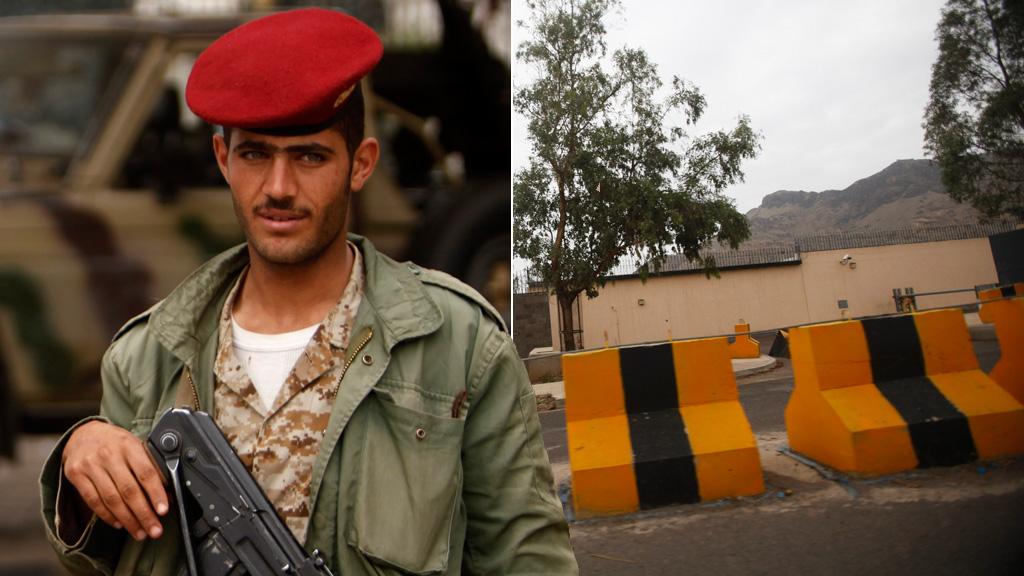Al-Qaeda Yemen threat: UK evacuates all embassy staff
Britain pulls all embassy staff out of Yemen due to “increased security concerns”, whilst the US orders all non-essential personnel to exit the country.

A statement on Tuesday said the embassy would remain closed until further notice, following terror alerts reported to have been sparked by a conversation between al-Qaeda’s head, located in Pakistan, and his deputy in Yemen.
“Due to increased security concerns, all staff in the British embassy have been temporarily withdrawn and the embassy will remain closed until staff are able to return,” the Foreign Office said on its website.
People have been advised not to travel to the country, and the Foreign Office is saying British citizens in the country should leave as it is “extremely unlikely” evacuation could be arranged if the security situation deteriorates.
The US State Department also ordered non-essential personnel at the US embassy in Yemen to leave the country, and told its citizens in the country to exit “immediately”.
‘Major’ al-Qaeda plot
Several western embassies in Yemen, as well as US missions across the Middle East and north Africa, were closed over the weekend due to heightened security concerns.
It was reported on Monday that the concerns, sparked by “pre-9/11” levels of terrorist “chatter”, were due to conversations between Ayman al-Zawahri, who took over as head of al-Qaeda following the death of Osama Bin Laden, and Nasser al-Wahishi, his deputy in Yemen,
Zawahri, it was reported, ordered al-Wahishi to carry out an attack as early as Sunday 3 August. A US intelligence official and a Middle East diplomat, who did not want to be named, said the threat was at first thought to only target Yemeni interests but was later expanded to include American and other Western sites abroad.
Read more: Zawahri and the US's other most wanted terrorists
Politicians have said the al-Qaeda pair had been planning a massive plot which was in its final stages, but no further details have been revealed.
Drone strike
Yemen is one of al-Qaeda’s strongholds, with one of the terror group’s factions, al-Qaeda in the Arab Peninsula (AQAP) believed to have several hundred members in the country. The Yemeni government has tried to suppress al-Qaeda in the region, though as yet without success.
US drone strikes have also been used to target al-Qaeda militants, though question marks have been raised over their accuracy, and the impact they have on civilians.
According to the Bureau of Investigative Journalism, there have been between 47 and 57 confirmed US drone strikes in Yemen since 2002. In total, between 243 and 358 people have been have been killed in the attacks, of which between 15 and 52 are thought to be civilians and two were children.
The BIJ also reports that there have been between 83 and 102 other “possible” US drone strikes in the period, in which as many as 468 people may have been killed.
Between 23 and 48 of people killed in these extra strikes are thought to have been civilians, and between six and nine are thought to have been children.
On Monday the US added to its kill count in the country, when a drone successfully fired on a car alleged to have been carrying four al-Qaeda members.
Yemen officials say the drone fired a missile which set the car on fire, killing all of the men inside. The attack took place in the al-Arqeen district of Marib province.
It has been claimed one of the men killed was Saleh Jouti, a senior al-Qaeda member.